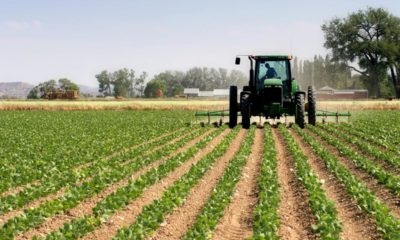Nigeria‘s government has revealed an audacious $500 million plan aimed at revolutionizing food production and bolstering food security across the nation.
The comprehensive initiative, announced by Vice President Kashim Shettima, seeks to address pressing challenges in the agro-sector while ensuring a stable food supply for its population of over 200 million.
With funds secured from diverse sources, including multilateral development banks and international financial institutions, Nigeria is poised to embark on an ambitious journey of agricultural renaissance.
The primary focus of the plan will be threefold: to drive innovation finance for food system transformation, develop Nigeria’s agro value chain, and establish special agro-industrial processing zones programs.
The urgency of this massive undertaking was underscored by President Bola Tinubu’s recent declaration of a state of emergency, signaling a dire need for exceptional measures to boost food security and supply. Inflation, at its fastest pace in two decades, has intensified the challenges faced by a nation already grappling with an array of socioeconomic hurdles.
As part of the strategic approach, the government is considering innovative solutions to ramp up agricultural output and ease food costs. One such measure involves the potential clearance of forests for farmland expansion, a move that aims to optimize land usage and increase overall agricultural capacity.
However, Nigeria’s food crisis is not solely a challenge of production; it is also inextricably linked to security concerns. A decade-long insurgency led by Islamist militants and the menace of banditry have significantly curtailed farm output and disrupted rural livelihoods.
Vice President Kashim Shettima stressed the administration’s commitment to addressing the security challenges head-on. He revealed that the president has already approved substantial funds for the strategic repositioning of the country’s security architecture.
This critical step will ensure the safety and protection of farmers and agricultural assets, fostering an environment conducive to enhanced food production.
The unveiling of the $500 million plan signifies a determined effort by Nigeria’s government to secure a brighter future for its citizens. By targeting food production and security, the nation aims to establish a resilient and sustainable food system that can withstand external shocks and ensure the well-being of its populace.
The success of this multifaceted plan hinges on efficient implementation and coordination among various stakeholders. As the nation stands at the threshold of a new agricultural era, it seeks to leverage its resources, embrace innovation, and foster partnerships to uplift farmers, secure the food supply chain, and finally tackle the hunger crisis head-on.
As Nigeria’s agricultural revolution begins to take shape, the world will be watching closely, witnessing the impact of a $500 million investment on food security, economic stability, and the overall prosperity of this vibrant nation.

 Forex3 weeks ago
Forex3 weeks ago
 Naira3 weeks ago
Naira3 weeks ago
 Billionaire Watch2 weeks ago
Billionaire Watch2 weeks ago



 Naira3 weeks ago
Naira3 weeks ago






 Naira2 weeks ago
Naira2 weeks ago




 Naira1 week ago
Naira1 week ago




 Naira4 weeks ago
Naira4 weeks ago






 Naira1 week ago
Naira1 week ago




















